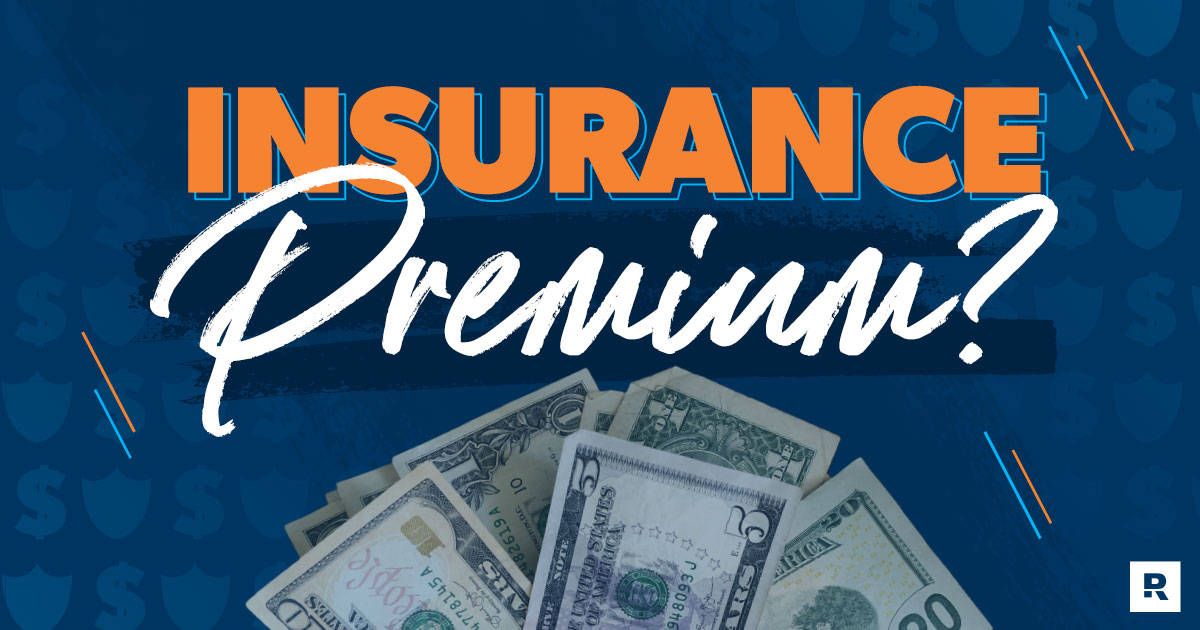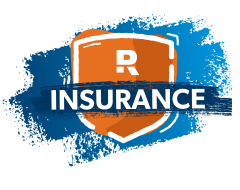
Ever go to a party and, while you’re making small talk, someone randomly says, “Hey, you guys you know what’s really cool? Insurance premiums.”
Okay, that’s probably never happened because that would be weird. You’d all stare blankly at each other, like, Why is this dude talking about insurance premiums at a party? If it ever did happen, you’d smartly excuse yourself and go find a new group of friends talking about religion or politics. At least that would be exciting.
But, still, a seed would be planted, and then you would absolutely need to know what an insurance premium is.
What is an insurance premium?
In a nutshell, an insurance premium is the payment or installment you agree to pay a company in order to have insurance. You enter into a contract with an insurance company that guarantees payment in case of damage or loss and, for this, you agree to pay them a certain, smaller amount of money. Depending on the type of insurance, you might make a or a series of regular or monthly payments.
So, how do insurance companies come up with the price of the premium?
Well, first, people called actuaries work for insurance companies to determine the particular risks associated with a policy. They look at things like how likely a disaster or accident is, and the likelihood of a claim being filed, and how much the company will be on the hook for paying out if a claim is filed. They put this information into a chart called an actuary table (if you must know) and give this to a person called an underwriter.
Now, the underwriter uses this data along with information provided by the person or company asking for insurance when they issue a policy to determine what the exact premium will be for the amount of coverage they want. While all insurance works in the same basic way, in order to keep this discussion from becoming too abstract, let’s look at how insurance companies determine premium amounts for a few different types of insurance.
Car Insurance Premiums
Some of the things that affect your auto insurance premium are the type of car you drive, how old it is, what safety features it has, how much it’s worth, where you live, and how far you commute. The insurance company may also look at whether or not you park your car in a garage.
Underwriters also consider your driving record to see how big of a risk you are to insure. If you have a lot of speeding tickets or you’ve been in a bunch of accidents, your premiums will be more expensive than those for a person who doesn’t. They’re considered lower risk.
Homeowner’s Insurance Premiums
Homeowner’s insurance premiums are determined by the location and age of the house. Insurance companies will also look at the age of the roof, how much the house is worth, and what the climate is like.
Renter’s Insurance Premiums
The premium for renter’s insurance is driven mainly by your location and whether or not you have a history of filing claims. The more coverage you get, the more you can expect to pay—which is true for any insurance coverage.
Life Insurance Premiums
For life insurance, the insurance company looks at your health and medical history, your family’s medical history and whether or not you drink alcohol or smoke (and how much). You can also expect to go through a medical exam and lab tests. The amount of coverage also factors into how much your premium will be.
Health Insurance Premiums
Many people get their health insurance through their job, so the size of the premium is determined by which coverage you choose. If you’re buying your own health coverage through a health insurance exchange, other factors can affect your premium—like which kinds of insurance are available, how many companies are competing on the exchange, and how many people are also buying insurance on the exchange.
Other Types of Insurance
For the most part, if you can put a dollar amount on something, you can get it insured. There are a few basic types of insurance that everyone needs. Beyond that, celebrities and athletes often insure body parts they’re famous for—like Mariah Carey’s voice or an ace pitcher’s arm. This is common with professional sports when a player’s contract is fully guaranteed. If the player gets hurt and can’t play, the team still has to pay him. The team needs insurance in the case the player is unable to complete his contract, and those premiums are usually pretty expensive.
If you run a business with employees, you need to get worker’s compensation insurance. If you own an alpaca ranch, you need livestock insurance. You get the idea.
Are You Protected With the Right Insurance?
Take the Coverage Checkup to get a personalized action plan that breaks down what to keep, add or nix so you can take control of your insurance with confidence.
How the deductible affects an insurance premium
Except for life insurance, almost all insurance policies come with a deductible. That’s the portion of the damages (or services if we’re talking about health insurance) you have to pay out of your own pocket before your coverage kicks in. The higher your deductible is, the lower your premium is—and vice versa. So, having a higher deductible is a great way to lower your insurance premiums.
How high should your deductible be to keep your premium low? For health insurance, having a high deductible health plan (HDHP) combined with a health savings account is the best way to save on your premium. For car insurance or homeowner’s insurance, having a $1,000 deductible is a good place to start. That’s because the first step in getting control of your money is saving up a $1,000 emergency fund.
But, beyond that, you’ll probably need to do a break-even analysis to see what really makes sense for you. Let’s say your car insurance premium is $1,200 per year with a $250 deductible and bumping it up to a $1,000 deductible drops your premium to $700. That means that for taking on a bigger risk of $750, you’d save $500.
If you don’t have a lot of claims, you’d make back that $750 in two years. But let’s say your premium only goes down to $1,100. It would then take you more than seven years without a claim to break even, so you’d be better off keeping your lower deductible.
Another thing to consider is how often you have to file a claim. Unfortunately, there are a lot of poor drivers out there and, if you’re unlucky enough to run into them (pardon the pun), you’ll want to keep that lower deductible.
Do you need an insurance check-up?
Whether you’re shopping for a health insurance policy or homeowner’s insurance or you have a teenager who’s about to get their driver’s license and you need to add them to your car insurance policy, our Endorsed Local Providers (ELPs) can help you get the best deal on your coverage and your premiums.
They’re independent agents, so they can shop a bunch of different companies to find you the best coverage at the lowest price. They have the heart of a teacher and will make sure you understand exactly how much coverage you need and how much it should cost. If you’re paying too much in insurance premiums—no matter what type of insurance you have—they can get you sorted out and have you saving money in no time.
Get trusted coverage that fits your budget.
When you work with a RamseyTrusted pro, you can feel confident knowing they’re going to find the best policy for you at the best price.



